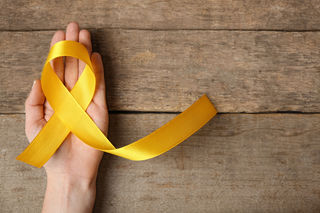Suicide
Reckoning With The Parkland Survivor Suicides
Three lessons I learned in survivors of suicide support groups.
Posted March 25, 2019

Before I begin the content of this post, I want say that my deepest sympathies are with the families of the two students who were survivors of the Parkland Shooting, and who were reported in the past few days to have lost their lives by suicide. I felt moved to write about this event because I have known parents who have lost their high school-aged children to suicide, because I have lost a family member to suicide, and because I know there are so many people in the world who, like me, wish there were more we could do to bring those lives back or ease the pain of those losses. Not being a parent myself, I cannot claim to know the pain of losing a child under any circumstances and wanted to make sure I acknowledge that I am not claiming otherwise.
There will undoubtedly emerge voices to make these two tragic events political. There are many reasons that kind of reaction is valid considering that legislation is one of the few sweeping changes that can affect large amounts of Americans and influence long-term change. This is not, however, my interest in writing about these events. The world is mourning, the country is mourning, the local community is mourning, but what I think stands to be mentioned amidst the news coverage and social media response is that the families have suffered individually and personally and that death and loss, and in this instance, suicide, never feels like a trend or a shared experience to those left behind.
I say this from my personal perspective, not as a doctor or therapist or psychologist or psychiatrist, but as someone who has met dozens of other suicide survivors in support groups. The rooms where I have sat for hours and hours have given me so much compassion, understanding and insight about how to cope and contextualize these events in my own life and my hope in writing this is to communicate some of those lessons for anyone who is in search of tools to do the same, regardless of their relationship to the Parkland shooting, the recent news about the two student survivors who died, or anyone who feels they have been touched by suicide, post-traumatic stress-related deaths or has been emotionally triggered by all the media surrounding this, or is worried about a loved one in the aftermath of these events or future events. My only goal here is to share experiences that were useful to me in case they can be useful to others.
1 - Suicide Does Not Define A Person
One of the exercises that I experienced in a group session, was to share the life of the person who was lost. This included bringing a picture of the person to show everyone. In my case, I passed around a picture of my mother and talked about her life and everyone else in the group brought a picture of the person whose life they were remembering. The exercise gave each person in the room a chance to create a complete picture of their loved one, to think of the person's life not as an equation that leads to an unfortunate end, but the full picture of the person. Listening to the stories of other survivors was a valuable reminder that each and every one of us deserves to be understood holistically, and not by a single event or choice.
2 - Share Your Story
Losing a loved one to suicide can cause survivors guilt even in circumstances where it might not seem likely. In the case of the Parkland shooting, there's hardly a question that students have experienced tremendous guilt having walked away from the event alive. Though they were fortunate to survive, they are far from unharmed. As many people who have suffered through a traumatic and violent experience will tell you, the trauma becomes internalized and returns either through diagnosed post-traumatic-stress disorder (PTSD) or related feelings of terror, irritability, sleeplessness or a variety of other feelings and behaviors that are hard to resolve. Finding a safe space to process my experiences was invaluable and I met many people who suffered from PTSD-like symptoms in the support groups I attended whose trauma was eased because they could break the cycle of pain, survivor guilt, shame and thoughts of suicide by talking through their feelings with others. The National Institute of Mental Health website states that "Psychotherapy, or 'talk therapy,' is one type of psychosocial intervention and can effectively reduce suicide risk," among other types of therapies including cognitive behavioral therapy and dialectical behavior therapy.
3 - Analysis Isn't Always Helpful
A lot of pundits and experts and people all over the place will probably offer their explanations about the two students who died by suicide. They may not be entirely wrong in their assertions and observations, but making assumptions about the exact nature or reasons for these occurrences doesn't offer much in the way of peace, acceptance or proof to bereft loved ones or to the public, especially at such an early point in the grieving process. Answers or definitive conclusions are able to offer clarity to some, but in my experience, they often can leave a person feeling even worse. Sometimes the act of listening without judgment is healing in and of itself.
As someone who lost a person to suicide, I remember the emotional toll it took on me. The emotional burden carried by the students who survived the parkland shooting is a whole different pain I have not carried. I wish so much that all of the students working through the loss of these two people will honor them for their lives and not for their deaths.


